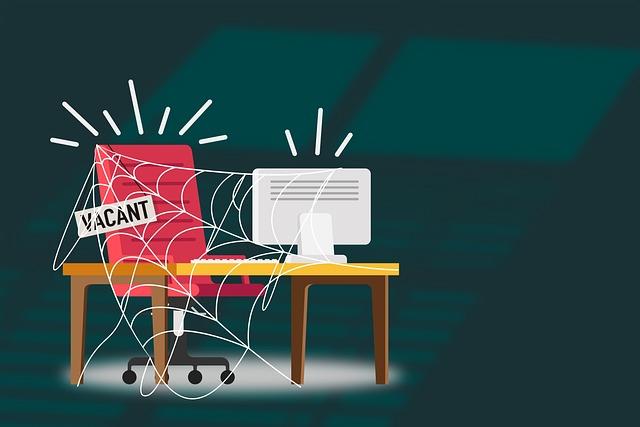So you want to be a true business expert, huh? Maybe you’ve read a few books, crushed some online courses, or even started your own side hustle. But here’s the thing — becoming a real pro in the business world isn’t just about knowing jargon or memorizing a handful of strategies. It’s a whole different ballgame. In this article, we’ll dive into what it truly takes to earn that expert badge, beyond the buzzwords and flashy credentials. Ready to get real? Let’s break it down.
Understanding the Mindset That Separates Experts from Beginners
At the core of true expertise lies a mindset that refuses to settle for surface-level knowledge. While beginners frequently enough look for quick wins or easy answers, experts embrace complexity, understanding that mastery is a journey filled with continuous learning and adaptation. They don’t shy away from failure; instead, they see it as a vital feedback mechanism that sharpens their skills and deepens their insight. this mindset encourages asking *better questions*, challenging assumptions, and pushing beyond comfort zones—key traits that separate those who dabble from those who dominate.
Consider this simple breakdown of how mindset shapes everyday actions:
| Aspect | Beginner Approach | Expert Approach |
|---|---|---|
| Learning | Focus on quick tips and hacks | Commit to deep understanding and reflection |
| problem-Solving | Look for shortcuts or immediate fixes | Analyze root causes and systemic patterns |
| Risk | Avoid mistakes at all costs | Take calculated risks and learn from outcomes |
Knowing what separates experts isn’t just about skill—it’s about cultivating patience,resilience,and a proactive hunger for growth. This is the mindset that transforms ordinary efforts into unusual success stories.

Mastering the Art of Continuous Learning and Adaptation
In the fast-evolving landscape of business, clinging to yesterday’s knowledge is a recipe for obsolescence. Real experts thrive because they embrace learning as a lifelong journey, constantly updating their skills and perspectives. It’s not just about consuming details but actively applying new insights to real-world challenges. Whether it’s adopting the latest tech tools,understanding shifting consumer behaviors,or tweaking strategies based on fresh data,staying agile is the secret sauce. Continuous learning isn’t optional — it’s the fuel that powers the innovative mindset needed to outpace competitors.
Developing this mental adaptability means cultivating habits that keep you sharp and open-minded. Here are some ways you can embed adaptation into your daily routine:
- Seek feedback from peers and customers with curiosity, not defensiveness
- Set aside time weekly for industry reading or skill-building courses
- Experiment boldly with new business models or marketing tactics
- Reflect regularly on both successes and failures to identify lessons
| Learning strategy | Benefit |
|---|---|
| Peer Collaboration | Broader perspectives and creative problem-solving |
| Online Courses | upgrading skills at your own pace |
| Customer Surveys | Real-time validation of ideas and improvements |
| Failure Analysis | Identifying growth opportunities and avoiding repeat mistakes |

Building Real-World Experience Through Smart Risk Taking
gaining hands-on business savvy isn’t just about avoiding mistakes; it’s about learning when to take calculated leaps. Smart risk taking means identifying opportunities that push your boundaries without throwing caution to the wind. It’s in those moments of stepping out of your comfort zone—launching a new idea, negotiating a tough deal, or investing in a bold project—where you cultivate real, tangible expertise. Remember,every unsuccessful attempt ahead of success builds resilience and sharpens your decision-making skills.
Consider the following game-changing habits to embrace a smarter risk mindset:
- Analyze before you act: gather intel, weigh pros and cons, and forecast impacts.
- Start small: pilot experiments limit downside while providing valuable feedback.
- Learn fast: debrief wins AND losses to continuously refine your strategy.
| Risk Type | Smart Approach | Potential Gain |
|---|---|---|
| Market Expansion | Test local demand first | New customer base |
| Product Innovation | Prototype & iterate quickly | Competitive advantage |
| Partnership Deals | Negotiate clear terms upfront | Shared resources & growth |
Networking Like a Pro Without Feeling Fake
Building genuine connections is less about perfect elevator pitches and more about authentic curiosity. Instead of trying to impress at all costs, focus on asking meaningful questions and truly listening. This approach naturally fosters trust and opens doors to relationships that last beyond the typical business card exchange. Remember, people can tell when you’re being real versus rehearsed, so let your personality shine through—even if that means embracing a few awkward moments along the way.
to make it even easier, keep these tips in mind:
- Be present: Put away distractions and give your full attention.
- Find common ground: Shared interests create memorable conversations.
- Follow up: A quick message referencing your chat shows you care.
- Offer value: Share helpful info or connections without expecting immediate returns.
| Do | Don’t |
|---|---|
| Listen more than you speak | Dominate the conversation |
| show genuine enthusiasm | Use canned lines |
| Be curious about them | Only talk about yourself |
Turning Failures Into Your Greatest Business Assets
Every entrepreneur’s journey is dotted with setbacks — but what separates the seasoned pros from the novices is how they *use* those setbacks. Rather of burying mistakes or pretending they never happened, accomplished business experts dive into what went wrong and extract gold nuggets of wisdom. Think of failures as *untapped data banks* waiting to reveal exactly where processes break down, customer needs shift, or interaction falters. When you learn to welcome these moments, you transform obstacles into tools for fine-tuning your strategies and boosting resilience.
In fact, reframing failure changes your mindset, which then alters your entire business approach. Here’s a quick look at the power that comes from embracing missteps:
- Fresh Perspective: identifies blind spots you didn’t know existed
- Risk Calibration: Helps you understand which risks are worth taking next time
- Innovation Spark: encourages creative ways to solve persistent problems
- Proof of Progress: Each failure means you’re trying — and moving forward
| Failure type | Business Lesson | Next Steps |
|---|---|---|
| Product Launch Delay | Improve timeline & communication | Set clear milestones |
| Poor Customer Feedback | Understand actual needs better | Conduct focus groups |
| Cash Flow Crunch | Manage expenses & forecast | Create monthly budget reviews |
Q&A
Q&A: What It Really Takes to Become a True Business Expert
Q: So,what actually does it mean to be a true business expert?
A: Great question! Being a business expert isn’t just about knowing the latest buzzwords or crunching numbers. It means having a deep understanding of how businesses operate,a knack for solving problems,and the wisdom to make smart decisions—even when things get messy. it’s about combining knowledge, experience, and the right mindset.
Q: Do you need a fancy degree or MBA to become one?
A: Not necessarily.Formal education can definitely help build a foundation, but lots of true experts didn’t get there by just hitting the books. Real expertise often comes from hands-on experience, learning from mistakes, and constantly adapting. Think of it like this: schooling gives you the map, but you gotta hike the trail yourself.
Q: Is years of experience the secret sauce?
A: Experience matters, but quality beats quantity. Sitting in a job for 10 years won’t make you an expert if you’re doing the same thing over and over without learning or growing. what really counts is getting exposure to different challenges, industries, and roles—stretching yourself out of the comfort zone.
Q: What kind of mindset should a business expert have?
A: Curious, adaptable, and hungry for growth. True experts never stop learning. They’re comfortable admitting when they don’t know something and seek out new perspectives.Also, resilience is key—business is messy, and experts know how to roll with the punches.
Q: How crucial is networking and relationships?
A: Huge. Business is all about people. Building solid relationships, learning from others, and collaborating can open doors you didn’t even know existed. Sometimes your network itself becomes your biggest asset.
Q: Are there any habits that set business experts apart?
A: Absolutely. they read endlessly—books, reports, market news. They ask tons of questions. They reflect on their experiences and failures. They stay organized but flexible, plan strategically but also know when to pivot. And, of course, they communicate clearly and confidently.
Q: Can anyone become a business expert, or is it just for certain “types” of people?
A: Anyone can become a business expert if they commit to the process. It’s not some secret club reserved for introverts or extroverts, math whizzes or creatives. It’s about passion, dedication, and being willing to put in the work.
Becoming a true business expert isn’t about overnight success or flashy titles—it’s a journey of constant learning, experience, and growth. So, ready to start your path?
Insights and Conclusions
Becoming a true business expert isn’t about overnight success or flashy titles—it’s a journey full of learning, adapting, and sometimes failing forward.It takes grit, curiosity, and a genuine passion for solving problems. So if you’re ready to roll up your sleeves and dive in, remember: expertise isn’t given, it’s earned, one experience at a time. Keep pushing,keep questioning,and most importantly,keep growing. You’ve got this!











